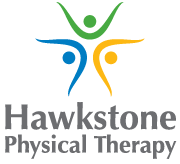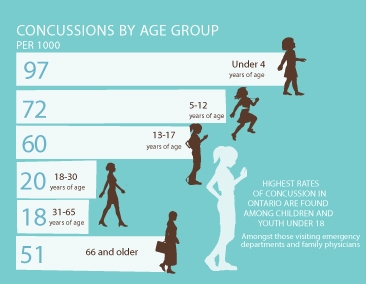Let's Chat About Concussions
/With the winter sports season upon us we want to raise your awareness about concussions. A concussion is a type of traumatic brain injury—or TBI—caused by a bump, blow, jolt to the head, or by a hit to the body that causes the head and brain to move rapidly back and forth. This can be caused by a motor vehicle accident, a body check, or even a fall on ice.
Sports are not always the culprit but statistics have shown one in five sport-related injuries are concussions. On top of that, athletes younger than 20 are more likely to suffer a concussion.
Lucky for us, we have a fantastic Physical Therapist at Hawkstone who treats concussions! The author recently sat down with Gabrielle (Abbey) to chat about what to look for, what to expect and how we can help you get through this unique injury.
What are the signs and symptoms of a concussion?
Most patients report just being unable maintain day to day activities. This is because they fatigue much faster and will not have the same energy to perform simple daily tasks. This often is due to one or more symptoms. Once they push past their exhaustion level they often can experience headaches, dizziness and possible nausea. Light sensitivity, difficulty focusing, short term memory loss and behavioural changes. Many also will notice changes in sleep patterns, specifically falling asleep. Some will also notice balance and coordination limitations.
How can Physical Therapy help me heal?
Our role is to help our patients regain a functional lifestyle and return them to baseline function in day to day activities. We also assist in a gradual return to work or play that is safe for the patient and can manage symptoms appropriately.
What can I expect from a Physio treatment for a concussion?
We will make you feel worse, before you feel better. In order to heal, we have to push slightly into the provoking symptoms while not pushing it past a dangerous level. We often start with gradual cardio conditioning, gentle strengthening, visual exercises to improve focus and balance exercises.
When can I return to my sport?
When we believe it is safe to do so. Concussions are never the same... they can present differently in all individuals and will progress at different rates. Even a single person with repetitive head trauma can experience variations in symptoms with each concussion. We base the return on functional measures.
That’s some great information, Thanks Abbey!
The best thing you can do for yourself or for your young athlete is prevention. Ensuring athletes are respectful of the rules and other participants in their sport helps to minimize unnecessary aggression and unsafe tackles and hits. Wearing sport approved, well-fitting equipment including helmets with the chin straps done up snugly plays a huge part in the prevention of other injuries as well as concussions.
Children make up the largest population of concussion patients
We always encourage you to wear proper protective gear and play safe!


